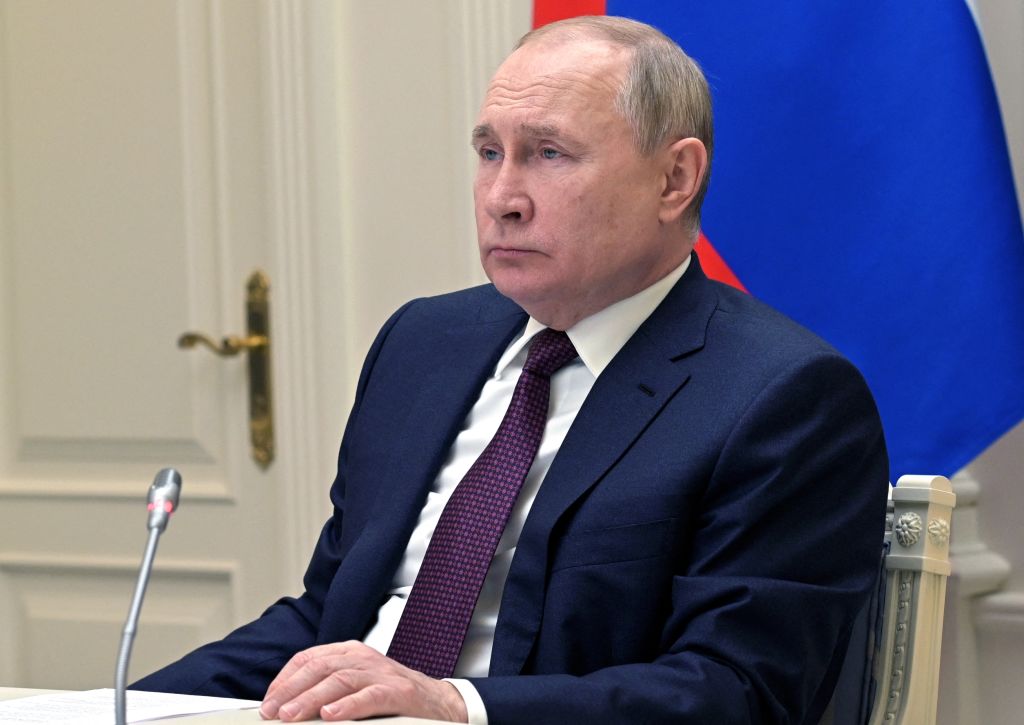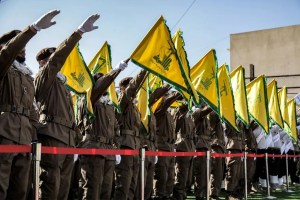Amid a pile of Russian disinformation, a mass evacuation of civilians from the self-proclaimed separatist republic and reports that Russian commanders are preparing to execute an invasion order, diplomacy (or at least the hope of it) reared its beautiful head late Sunday night. After a frantic series of calls orchestrated by French president Emmanuel Macron, the White House released a statement confirming President Biden’s openness to a direct meeting with Russian president Vladimir Putin.
Whether or not the leader-to-leader discussions happen, however, won’t be fully up to Biden or Macron. It takes two to tango, as the hackneyed phrase goes. And right now, Moscow has been habitually cryptic about its intentions. Putin’s press secretary, Dmitry Peskov, said that no planning for a leader-to-leader summit would be “premature.” US secretary of state Antony Blinken and Russian foreign minister Sergey Lavrov will talk later this Thursday.
It’s impossible to know whether this diplomatic development is real, or if it’s just more ammunition in the narrative wars between Washington and Moscow. Putin’s hour-long diatribe against Ukraine, in which he called it a fake country, and his official recognition of the Donetsk and Luhansk people’s republics as official states, may hurt the prospects of an off-ramp.
Still, one hopes that diplomacy is in play, because the alternative would be absolutely horrendous. Putin has a number of military options on order, but American officials are increasingly concerned that he could opt for the most destructive one on the menu — a coordinated, ruthless, multi-day attack against Ukraine, employing missiles, air power, and massive cyberattacks to destroy Kyiv’s command-and-control apparatus, instill fear into the Ukrainian population, and lay the groundwork for a large ground offensive.
If this scenario were be realized, one US official told the New York Times to expect tens of thousands of casualties in the first few days. This squares with previous assessments, including one earlier this month that predicted 50,000 Ukrainian civilian casualties and millions of refugees.
One thing is for certain: if a war were to erupt, Ukraine would be on the losing end. The Russian military is simply too large and well equipped, at least compared to Ukraine, for Kyiv to do anything more than slow a Russian offensive. The US and its NATO allies can continue stocking military transport aircraft with weapons and ammunition for the Ukrainian army, but no amount of ordnance will allow Ukraine to defeat Russia in a conventional battle.
This is why the most intransigent position on Russia is not necessarily the most beneficial one for Ukrainians; indeed, if you truly care about Ukraine, you would do everything possible to prevent a situation where the country is overrun. And that means putting things on the negotiating table, like Ukraine’s status vis-à-vis NATO, that could actually push Putin into reconsidering an invasion.
The world’s attention remains on Ukraine for good reason. But it’s critical to recognize why the months-long standoff near that country’s borders continues to fester. It’s not because Putin is terrified of democracy next door, as some high-profile commentators have assessed. It’s not because Putin has a secret plan to resurrect a Soviet Union 2.0; the Russians are too weak economically and militarily to sustain such a project.
No, the crisis at its heart is about a three-decade-old security order in Europe that’s been despised by Moscow ever since the Soviet Union dissolved into fifteen separate states. Yes, the collapse of the USSR was a gut punch to the Kremlin, with Putin himself calling it “the greatest geopolitical catastrophe” of the twentieth century. But just as humiliating to Russia was being cast as an afterthought or minor nuisance in the two decades after the Soviet collapse. Moscow not only lost its superpower status, but much of its self-respect.
The Russia of the 1990s was a weak shell of its former self, flirting with bankruptcy, overridden by criminals, and powerless to do anything about NATO’s eastwardly expansion other than complain. Western commentators tend to dismiss all this as a narrative concocted by Russian trolls. Yet for the Russian political elite, it’s a real experience — and a formidable one.
This isn’t meant to be an excuse for Russia’s conduct over the last several months or indeed the last eight years (March 18 will mark the eighth anniversary of Moscow’s annexation of Crimea). There is much about Russia’s behavior that is revolting on a moral level.
Big powers, however, aren’t immune to throwing their weight around when their core security interests are threatened. This is just a fact of life in international relations, born out numerous times throughout history. And as MIT professor Steve Van Evera wrote in a report for Defense Priorities, big powers don’t tend to passively accept hostile alliances close to their borders. While Western leaders may heap praise on NATO for being a benevolent alliance, Russia doesn’t perceive things that way.
So even if the Biden administration is able to work its diplomatic magic in Ukraine, similar standoffs could happen in the future as long as Russia, the largest military power in Europe, is effectively iced out of the neighborhood (there are several so-called “frozen conflicts” in Europe, the hottest one taking place along the 250-mile front-line in the Donbas region). A longer, more comprehensive, and frustrating conversation will have to occur if Europe is to escape similar crises down the line — and Russia, like it or not, will have to be an integral part of them.


















